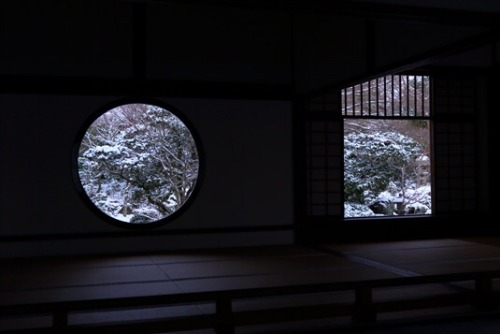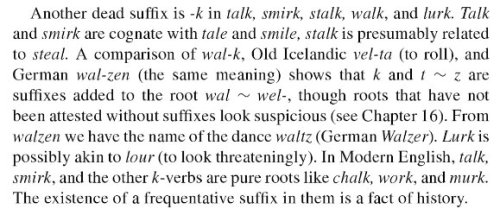JLPT | 日本語能力試験 Hey Guys, Throughout My Time Running This Studyblr I’ve Received A Lot

JLPT | 日本語能力試験 Hey guys, throughout my time running this studyblr I’ve received a lot of questions regarding the JLPT exam. Personally, I myself have never taken the exam nor am I planning on doing so in the near future, however I have asked my closest friends around me who have taken the exam in the past, or who are currently studying for it, for advice regarding how to prepare for the exams. So below is some advice, information, and resources that I’ve gathered over time. I hope it’ll be able to help answer some of your questions! What is the JLPT and why is it important? The Japanese Language Proficiency Test is an internationally recognised exam that measures the proficiency of non-native Japanese speakers. There are five levels, N5, N4, N3, N2, and N1. N5 is the lowest level, which is equivalent to basic conversational Japanese skills, and N1 is the highest level, equivalent to that of a native speaker. The JLPT is important say for example, if you plan on working in Japan in a job that requires you to use Japanese. How can I take the JLPT? The test is held twice a year (July and December) in some cities, and just once a year in other cities (December). On the official website is a list of institutions that hold the JLPT. Which level should I take? You can attempt sample questions from the different levels on the official website in order to understand which level you are. What will I be tested on? The JLPT tests examiners on their vocabulary, grammar, reading, and listening skills. For a full view of all the items you will be tested on, check out the official website for more information. How should I study for the JLPT? There are a lot of websites online with information, resources, and study-guides for each level of the JLPT. This website hosts pdfs with practice tests, official workbooks, mock tests, and answer sheets for each level of the JLPT. It’s a good idea to purchase a textbook so that you can learn new vocabulary, grammar, and kanji, as well as get in some reading practice or practice exercises. - For N5/N4 I can recommend the Genki series or Minna no Nihongo. - For N3 Jitsuryoku Up! Nihongo Nouryoku Shiken has been recommended. - For N2/N1 日本語総まとめ and Kanzen Master (新完全マスター) books have been recommended. I’ve been told kanji is used quite sparingly in the N5/N4 exams, so I’ve been advised that you shouldn’t spend all of your time studying kanji for those exams. A good idea is to focus on the recommended kanji for each level, and spend more time on vocabulary, grammar, and more time on reading and listening comprehension. You should try to study every day if possible. Studying/cramming for a certain amount of hours in just one session each week is not a good way to retain information. You don’t have to study in the traditional sense every single day, it can be anything from reviewing vocabulary, going through kanji flashcards, or talking with Japanese friends. Another good tip is to time yourself with the appropriate exam timings when taking a practice test online to see how you score under exam conditions. Recommended websites and apps: - Memrise - for vocabulary - Anki decks - for kanji - iTalki - speak with conversation partners or Japanese teachers - Nihongo Ichiban - JLPT materials - JapaneseTest4You - JLPT materials - Jisho - good online dictionary - Nihongonomori - JLPT Youtube channel - Tanos - JLPT materials Textbook PDF’s: - Genki I - Genki II - Genki Answer Key - Japanese for Busy People - Kanji Look and Learn - A Dictionary of Basic Japanese Grammar - Tae Kim’s Japanese Grammar Guide Disclaimer: As I mentioned before I’ve never taken the JLPT exam, nor do I plan on taking it anytime soon, so I cannot be certain that all the informatin I’ve listed is correct. If I’m wrong about anything please let me know! 頑張ってください!
More Posts from Earthquakedeer and Others
spanish expressions of the day:
“[name of a place] está donde Cristo perdió el mechero.” “[name of a place] está donde Cristo dio las tres voces.” “[name of a place] está donde Cristo perdió los clavos.” “[name of a place] está donde Cristo perdió las sandalias.”
Translation and examples:
El Ikea está donde Cristo perdió el mechero - The Ikea is where Christ lost his lighter.
El colegio está donde Cristo dio las tres voces - The school is where Christ screamed thrice (but + literally: where Christ gave the three voices.)
El museo está donde Cristo perdió los clavos - The museum is where Christ lost the nails.
Tu casa está donde Cristo perdió las sandalias - Your house is where Christ lost the sandals.
And all these Christ-y expressions mean ‘in a remote place.’

A friend of mine uses this as her motivation tool - a giant poster of kanji that she highlights as she learns. I am considering doing this, too. I can just feel how excellent it would be to mark of things that I’ve learned.
She’s using the heisig method, which I know is not without controversy. For those of you studying kanji, in which order do you learn them and how did you choose?
血も涙もない
血も涙もない (ちもなみだもない) - heartless, unfeeling, cold-blooded. Literally “having no blood and no tears”.

Today and the next two days are going to be focused on weather. These are just some terms of weather. I hope you enjoy! The weather here lately has been nothing but rain. I wish for you all to have good weather where you are!!
25 Japanese words for clothing items

1。 ベルト [beruto] ~ belt
2。母子 [bōshi] ~ cap; hat
3。ブラジャー [burajā] ~ bra
4。ブリーフ [burīfu] ~ briefs; men’s underwear
5。ドレス [doresu] ~ dress
6。ジャケット [jaketto] ~ jacket
7。ジーンズ [jīnzu] ~ jeans
8。コート [kōto] ~ coat
9。靴 [kutsu] ~ shoes
10。靴下 [kutsushita] ~ socks
11。ネクタイ [nekutai] ~ neck tie
12。サングラス [sangurasu] ~ sunglasses
13。セーター [sētā] ~ sweater
14。シャツ [shatsu] ~ shirt
15。スカート [sukāto] ~ skirt
16。スーツ [sūtsu] ~ suit
17。スニーカー [sunīkā] ~ sneakers
18。トランクス [torankusu] ~ boxers; men’s underwear
19。ズボン [zubon] ~ pants
20。手袋 [tebukuro] ~ gloves
21。スカーフ [sukāfu] ~ scarf
22。宝石 [hōseki] ~ jewelry
23。水着 [mizugi] ~ swimsuit
24。パジャマ [pajama] ~ pajamas
25。服 [fuku] ~ clothes


Here are some colors, a couple vocab, and grammar! Sorry I haven’t been posting much lately. School has been pretty busy. I plan on trying to make daily posts though!



Genko-an Temple (Kyoto,JAPAN)
Summer/Fall/Winter

The obsolete English -k suffix is my new favourite thing (source). It’s also the same -k that derives “hark, hearken” from “hear”.
Guys, please be careful to vet that what you choose to signal boost is actually accurate. I’m seeing a lot of well-intentioned posts today about Net Neutrality that are likely to do just as much harm as good due to misinformation in them.
For instance, we are not all suddenly shouting that the sky is falling because the FCC has PASSED the bill abolishing Net Neutrality and the changes are to be put in place some time this month. As claimed by one post I just saw with over 5,000 notes already. This is simply, unequivocally NOT true, and it can actually get in the way of the call to action that very post made, asking people to call and email their congressmen, because a lot of people who see that might think “what’s the point, if its already passed?”
It hasn’t. Chairman Ajit Pai of the FCC unveiled in April his proposed plan to strike back the Net Neutrality regulations Obama’s administration passed in 2015, and which have since 2015 been upheld by the courts in the face of Republican opposition’s attempts to claim they overreached. What has people shouting the sky is falling NOW is because yesterday (November 21st) is when the date of the official vote on this proposed plan was announced. That date is December 14th.
Which means there IS still time to affect the outcome of the vote. People are pessimistic about the chances of this vote because the FCC board is held by a Republican majority at the moment, but make the passing of this bill seem toxic enough to other Republican interests and there is still a chance to keep it from passing.
Which is still a hell of a lot better than assuming the bill has already passed and that there’s really no point.
We have until December 14th to kick up enough of a fuss that the Republicans on the FCC board think twice about voting for this bill. And even after that, there are still legal recourses. The courts have refused to uphold other bills Trump’s administration has attempted to pass as overreaching, unconstitutional, and/or in opposition of the true will of the people - just as the Republicans attempted to do back in 2015 when the FCC under Obama passed the Net Neutrality laws in the first place.
This does not mean be complacent. This does not mean assume enough other people will raise enough of a fuss without adding your voice to the mix. It simply means THERE IS STILL TIME TO ACT. The sky may be falling, but until it finishes falling, there’s still a chance to catch it instead.
me: *speaks third language with the accent from second one*
-
 ros3ybabe liked this · 1 year ago
ros3ybabe liked this · 1 year ago -
 yutaira17 liked this · 2 years ago
yutaira17 liked this · 2 years ago -
 galaxytigerqueen liked this · 2 years ago
galaxytigerqueen liked this · 2 years ago -
 vousloey liked this · 3 years ago
vousloey liked this · 3 years ago -
 sunday-aloe liked this · 3 years ago
sunday-aloe liked this · 3 years ago -
 burningcakedetective liked this · 3 years ago
burningcakedetective liked this · 3 years ago -
 komakiki liked this · 3 years ago
komakiki liked this · 3 years ago -
 nihongogogohan reblogged this · 4 years ago
nihongogogohan reblogged this · 4 years ago -
 tugbamustdie liked this · 4 years ago
tugbamustdie liked this · 4 years ago -
 blacku-jp-notes liked this · 4 years ago
blacku-jp-notes liked this · 4 years ago -
 fertmblrblr liked this · 4 years ago
fertmblrblr liked this · 4 years ago -
 neuvilllette liked this · 4 years ago
neuvilllette liked this · 4 years ago -
 mikeemaj liked this · 4 years ago
mikeemaj liked this · 4 years ago -
 pilotsantichrist liked this · 4 years ago
pilotsantichrist liked this · 4 years ago -
 rozistudies liked this · 4 years ago
rozistudies liked this · 4 years ago -
 minimonimoon liked this · 4 years ago
minimonimoon liked this · 4 years ago -
 tenttoone liked this · 5 years ago
tenttoone liked this · 5 years ago -
 stardust-drop-archive liked this · 5 years ago
stardust-drop-archive liked this · 5 years ago -
 coffeestudybreak reblogged this · 5 years ago
coffeestudybreak reblogged this · 5 years ago -
 p0rnhood liked this · 5 years ago
p0rnhood liked this · 5 years ago -
 justafangirlthinkingoutloud liked this · 5 years ago
justafangirlthinkingoutloud liked this · 5 years ago -
 kiryuphobic liked this · 5 years ago
kiryuphobic liked this · 5 years ago -
 regalstudies reblogged this · 5 years ago
regalstudies reblogged this · 5 years ago -
 daisuki-nihongo reblogged this · 5 years ago
daisuki-nihongo reblogged this · 5 years ago -
 rinelisli liked this · 5 years ago
rinelisli liked this · 5 years ago -
 kenthelittlefictionist reblogged this · 5 years ago
kenthelittlefictionist reblogged this · 5 years ago -
 gentyjack liked this · 5 years ago
gentyjack liked this · 5 years ago -
 one-1-raindrop reblogged this · 5 years ago
one-1-raindrop reblogged this · 5 years ago
Just a person learning Japanese. Self-learner. If you're also studying Japanese and want to practice with someone (and you're also very much a beginner) then message me! はじめまして! さびーなです。よとしく!
196 posts